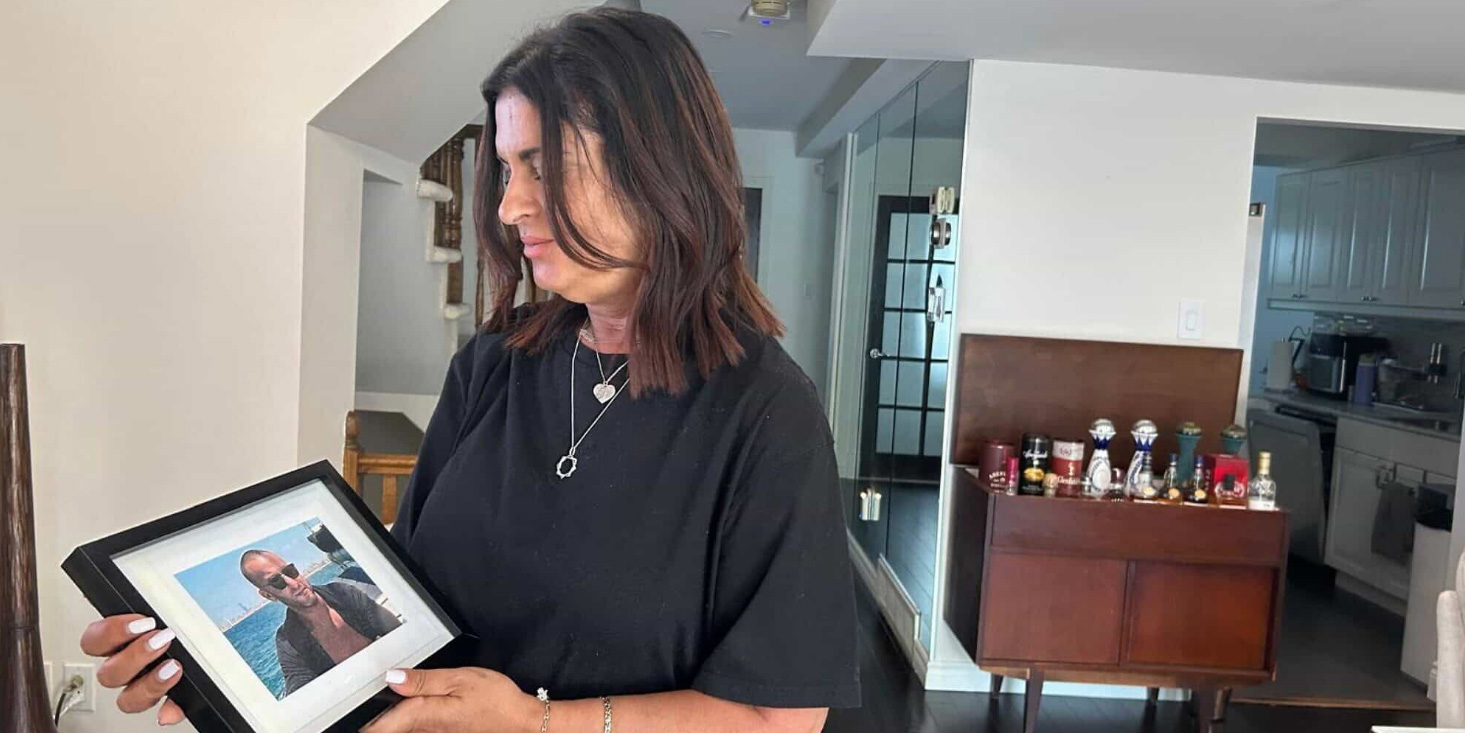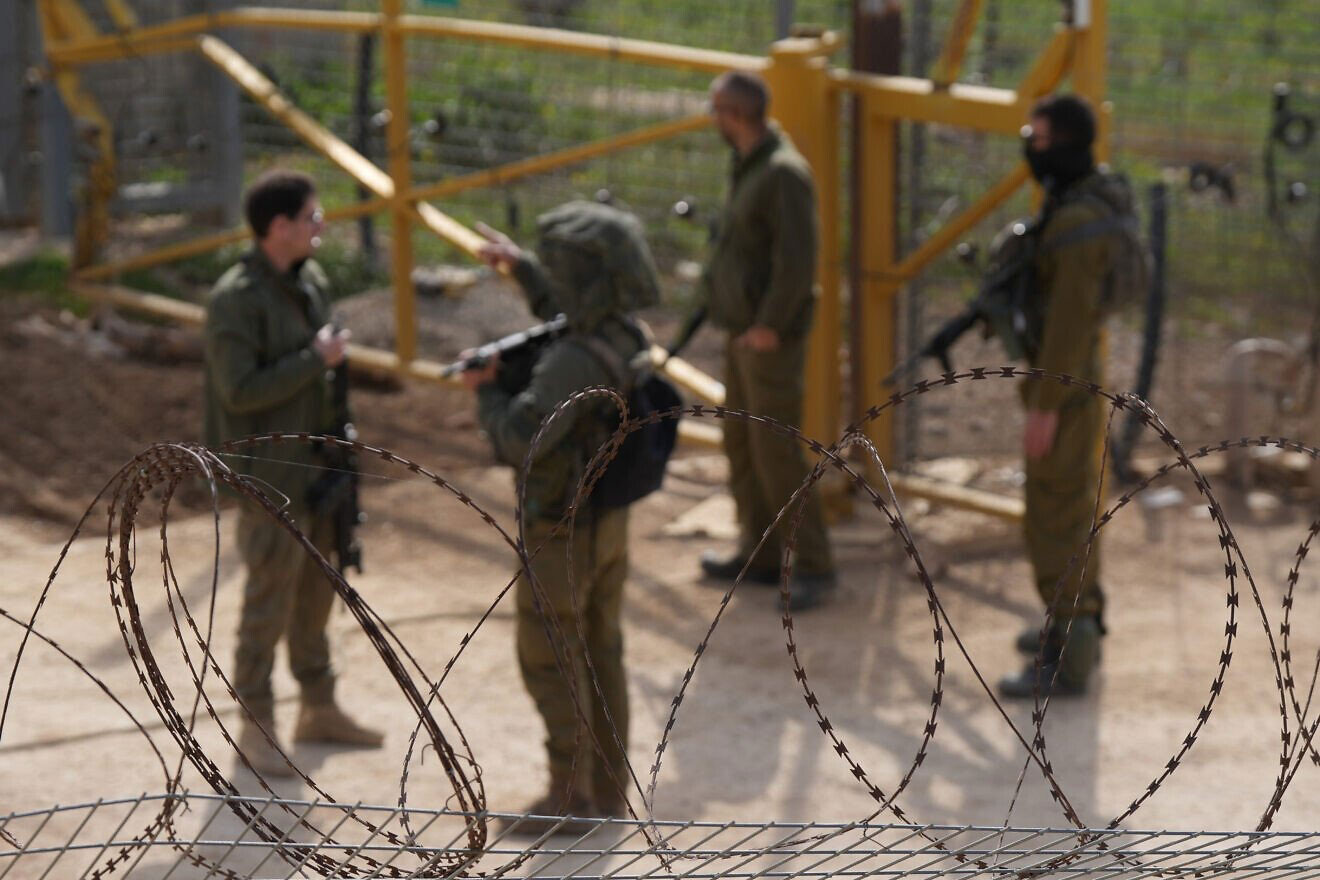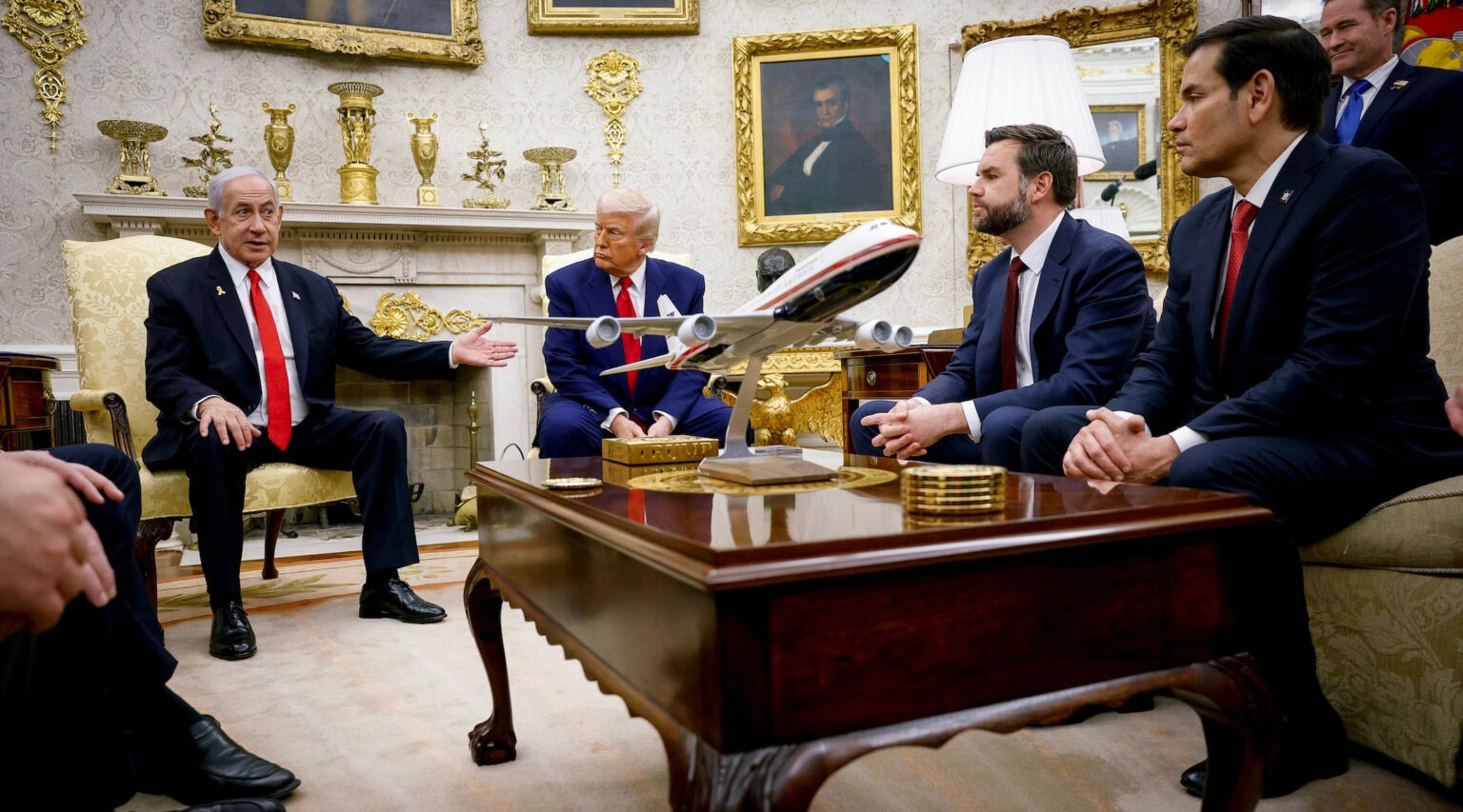Courtesy of JNS. Photo credit: Amelie Botbol
Raquel Ohnona Look holds a portrait of her son Alexandre inside her home in Montreal, August 2024
(JNS) — “One second we were talking and the next he was gone, I don’t think we will ever get over it,” Raquel Ohnona Look, whose son Alexandre Look, 33, was murdered at the Supernova music festival by Hamas terrorists, told JNS.
“I heard someone say once that the worst types of grief are the loss of a child of any age, when it’s completely unexpected, or when it’s a violent death. For us, it’s all three,” she added, speaking this week during a sit-down conversation in her Montreal home.
On Oct. 7, Alex was visiting Israel from Cabo San Lucas in the Mexican state of Baja California Sur and had driven with friends to the festival near Kibbutz Re’im for the night. At 6:30 a.m., he initiated a video call with his family back in Montreal that would last until his last moments.
“He first told us that there was a terrorist attack. He’d been to Israel so many times, I thought it was the usual. He asked us to turn on the news. I did not expect to see anything. They don’t generally cover our side being attacked; they just show the retaliation” Raquel said.
Alex was among the first to leave the site of the party and stop at a roadside bomb shelter near Kibbutz Be’eri as rocket sirens blared across the countryside. He stood guard at the entrance with other men while young women were getting inside.
“He was very suspicious and kept telling me that they all needed to stay sharp after a night of partying. When I first heard Arabic over the phone, I was a bit frightened, but he told me it was a Bedouin who had come to warn them of a terror attack 30 minutes from their location,” Raquel said.
“At that point, Alex wanted to leave again, but his friend was panicking. I told him to listen to the people he was with and that if there was a big terror attack, they were already dead and gone, that he was safe in the best country with the best military,” she added.
About 90 minutes into the call, Raquel heard gunshots and Alex saying “they” were coming and that there were a lot of them.
“I kept screaming, calling out for him, ‘Alex, Alex,’ and he said, ‘Mom, I can’t talk right now.’ Then we heard incessant gunshots and explosions. At that point, I dropped my phone. My husband, [Alain], picked it up. That’s when we heard ‘Allah Akbar, Allah Akbar,” she said.
“I thought maybe there is hope. Maybe he’s hurt and can’t get to a phone. Part of me knew. We started seeing the number of injured rise on the news but hardly any deaths, people kidnapped,” Raquel continued.
Eight and a half hours
Five and a half thousand miles away, Raquel started calling every single one of Alex’s friends in Israel to get information. When the army finally arrived to rescue survivors and recover the bodies of the deceased, one of the girls who knew Alex told the authorities he had been murdered while trying to fend off the terrorists.
Nine people who hid under the bodies of those who had stood at the entrance to the shelter survived.
“The hours passed. They had found people who were with him but we did not hear about Alex. I found out that his friends knew, they just didn’t know how to tell us,” Raquel said.
Finally, around 8 a.m. Eastern Time, some eight and a half hours after the attack on the festival began, a rabbi called.
“I passed the phone to my husband and then I heard him cry. I couldn’t believe it. Between his charm and the street smarts, Alex could get out of any situation. Then my husband said Alex is dead. When I heard, my belief in Israel, my belief in God, everything just changed,” she said.
“I was angry. At myself, for not telling him to run. I was angry at God, I was angry at Israel. I was in shock. I asked myself how he died and whether he had a minute to realize it. Some of my friends were saying that maybe it was a mistake, and that wasn’t good for me either,” she continued.
“Then I thought, it was horrible but it made perfect sense how he acted that day. He wouldn’t be the one hiding. He wouldn’t be the one scared. He fought with no fear in his eyes. He fought with everything he had in him, but it wasn’t a fair fight,” Raquel said.
A protective brother
A protective brother to his 30-year-old sister Kayla and a devoted friend, Alex loved to dance and reggaeton music, a genre popularized and dominated by artists from Puerto Rico since the early 1990s.
He spoke many languages and lived in many places including Hawaii, Miami and most recently Cabo San Lucas. He loved all Israeli food, schnitzel sandwiches, veal and truffles. He had a sweet tooth and his grandpa used to wait for him outside of school with Kinder Bueno chocolate bars. He loved sweet chestnuts his aunt would bring him from France.
He attended the Bialik day school in Montreal. He loved to host friends and family for Jewish holidays. All his friends were Israeli and they spent every summer together there. He had made a promise that once he was successful enough to do so, he’d move to Israel permanently.
“After it happened, none of us were functioning. I was killing myself looking for videos from that day,” Raquel said.
“We came across a post of the sounds inside the shelter during the attack. My daughter and I heard him yell ‘Halass! Halass!’ [Enough!’ or ‘Stop it’] in Arabic. We found pictures of the shelter he was in with all their blood and a video of the entrance where we spotted one of his boots,” she continued.
“I got the worst of it out of me. I plunged into the grief and the rawness of it all. I needed to do that. My husband is a little better at compartmentalizing, but every time he’d walk in on me watching a video of Alex dancing, he would break down,” she added.
Raquel decided that she did not want Alexandre buried in Israel, because it failed him on that day. She wanted him home, close to her father whom he was very close with. For a while, southern Israel was a closed military zone. Raquel mobilized all of Alex’s friends and Federation CJA to get her son home.
“They sent me a doctor just before Shabbat; he took samples of our DNA and sent it to ZAKA [Identification, Extraction and Rescue]. Four days later, they said they had identified Alex and that was the good news, can you imagine?”
Due to flight cancellations, it took a while to get Alex’s remains to Canada. His body was flown to New York and rabbis drove it to Montreal.
“Then, it was real. I wanted to see him one last time, kiss whatever parts were left of him, but they didn’t let me. I knew there were grenades, I heard it, but still one girl said she could see his face afterwards. They told me not to and to just remember him how he was before the massacre.”
Alex was buried in Montreal on Oct. 26.
“We need that place to go to to honor him, to speak to him, and I believe that when you are there, there is a connection. It couldn’t just be like he never existed, we needed something that stays there forever and that says who he was, what he did and how long he lived. There had to be,” Raquel said.
Canada and Gaza
As Raquel was sitting shivah for his son, Canadian Prime Minister Justin Trudeau called her.
“I’m disgusted by their attitude. I didn’t hold back my words. I told him the Jewish community no longer feels safe. They’re showing the poor Gazans while ignoring my son and all the other victims who were raped, beheaded, burnt,” she said.
“Canada did nothing aside from allowing violent [anti-Israel and antisemitic] protests to happen. Thank God for my community that found my son, brought him home and supported us through everything. The mayor of Montreal never even reached out,” she added.
After Oct.7, Alex’s family decided to move back to Côte Saint-Luc, a primarily English-speaking enclave within the city of Montreal with a large Jewish community. It was unthinkable for Raquel to stay in the house in which she had received that phone call on that fateful day. The walls of Raquel’s new home are covered with pictures of her son.
The picture that was used in a social media post to collect information on Alex that day sits above the chimney along with images of him as a baby or with Kayla.
“I don’t think we will ever experience full joy. You learn to live, yes, exist maybe, but it’s a hole that will never be filled,” Raquel said.
“Thank God we have our beautiful daughter, she is my raison d’être. He was so protective of her. Brothers and sisters, they grow up, they fight, but they were getting closer and he was so proud of her, he had her back,” she continued.
“He would be there for her when we’re gone. It’s not fair, it’s her only sibling and he was this larger-than-life sibling. I just wish he wasn’t such a hero. It’s not fair. He had so much life left to live. We needed more time. You always think you’ll have more time,” she added.
Keep his memory alive
Raquel, the city of Côte Saint-Luc and Alex’s friends back in Israel worked tirelessly to keep Alex’s memory alive.
Four bomb shelters were built in Alex’s name in Israel with money raised by the Jewish community. This year on Simcha Torah, Alex’s family will be dancing with a Sefer Torah that was made by Alex’s best friend, Ilan, in his memory.
Next week, the week of Alex’s 34th birthday, a ceremony will take place in a neighborhood park in his honor with a plaque unveiled for him.
“The park is the ultimate element to keep his memory alive. It’s a whole green space between the Chabad House where we used to spend Shabbat when he was a baby and the high school where he went. There is a place there for outside chuppahs [wedding ceremonies]” Raquel said.
“They tried to destroy us but we will have chuppahs in the park, we will celebrate Shabbat and births in the Chabad House and we will have our children educated in that high school. They tried to destroy us but we continue and we will never forget our angels,” she said.
“It’s almost as if Oct. 7 disappeared already. Now it’s all about the poor people of Gaza. This is the holocaust of our generation. We al have to be soldiers for our kids and loved ones and keep talking about them. It is our responsibility to keep all of their memories alive and continue this fight,” Raquel said.





